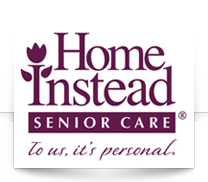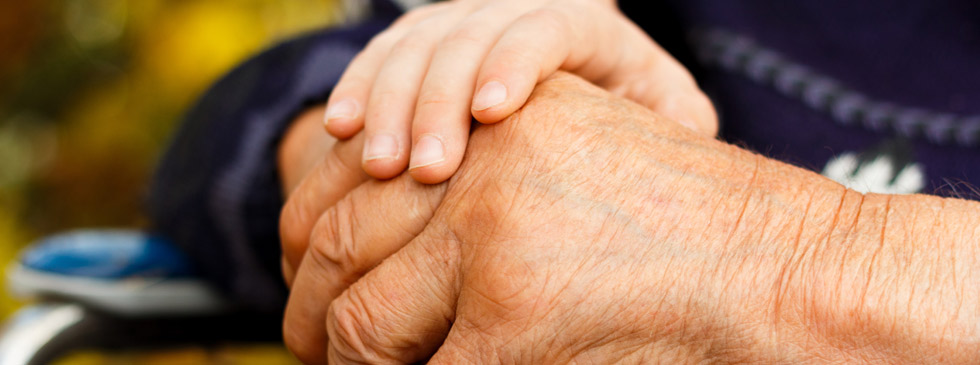Home Care Solution
Returning Home: Home Free!
Congratulations! Hopefully you senior loved one has made a successful transition home. Home is the place where most seniors want to be – and stay. As a matter of fact, upwards of 90% say they want to age in place at home, according to industry surveys.
Support for a family’s older adults is a labor of love that will generate benefits not only for seniors, but extended family members as well.
After all, you’ve set an example for the kind of love and care that honors the life of your older adult and serves as a legacy for future generations. And that’s something of which to be very proud.
Resources of the Returning Home Program
The Home Instead Senior Care network stands ready to provide the types of services that can help seniors make a successful transition from a hospital or facility back to their familiar home environment and routines during the critical 30 days after hospital discharge.
Services of the Home Instead Senior Care network’s Returning Home Care Program include:
- Readying an older adult’s home including changing bed linens, straightening the house to create a welcoming environment, buying groceries and preparing healthy meals;
- Discharge coordination and execution;
- medication and nutrition management;
- Record keeping;
- Monitoring for warning signs;
- Transportation to follow-up physician visits.
Returning Home: Doctor Follow-Up
Considering all the activity that goes with a senior’s return home, follow-up doctors’ appointments can be easily overlooked – especially if a senior feels well. But, according to experts, missed appointments are among the biggest pitfalls of a successful transition home.
As life returns to normal, you or a senior may be temped to forgo these appointments altogether. Or they can be easily forgotten. That would be a mistake. Medical appointments are important benchmarks in the recovery process.
Prescriptions may have been updated while your senior was sick or recovering. Perhaps they need to be changed again. Your senior’s doctor may want to run some blood work (which can reveal issues not obvious to the eye) or order follow-up X-rays and CT scans (which can help ensure your senior is on the right track). And incisions and wound care must be carefully monitored.
Another common concern for seniors and their family caregivers is transportation. With so may working family caregivers, getting that older adult to and from doctors’ appointments can be a challenge. You may need:
- Someone to make an appointment if your senior is unable to do so.
- Transportation for your senior to attend follow-up appointments and someone to listen to the physician’s recommendations, clarify for the senior, if necessary, and communicate to the family caregiver.
- Attention to detail while at the doctor’s office also is important. When he or she is with the doctor, the National Transistions of Care Coalition advises that your senior loved one should know these things:
- Why am I meeting with a health-care provider today?
- What medical conditions do I have?
- Do I have a list of all the medicines I take?
- Besides taking my medications, what else do I need to do (such as get blood tests or other medical tests, change bandages, etc.)?
- Is there more than one doctor or health-care provider that I must see?
- Has the doctor who discharged me sent my discharge plan or other information about my health to the doctor I am seeing?
- Who should I call before my next appointment if I have questions or problems managing my care or dealing with my condition?
If you are unable to be there to provide transportation and support at the doctor’s office, look to other resources to help.
Returning Home: A Rested Caregiver
During the early days of your senior’s recovery, you will want to make sure you’re taking care of yourself.
Family caregivers often suffer from debilitating stress that can endanger their own health and place the person they care for at risk as well. Anger anxiety, sadness, exhaustion and guilt are just a few of the signs that you will need assistance and support as a caregiver.
Make sure you’re doing the following:
- Work out: Exercise and enjoy something you like to do (walking, dancing, biking, running, swimming, etc.) for a minimum of 20 minutes at the least three times per week.
- Meditate: Sit still and breathe deeply with your mind as “quiet” as possible whenever things feel as if they are moving too quickly or you are feeling overwhelmed by your responsibilities as a caregiver.
- Ask for help: According to a national survey by the Home Instead Senior Care network of adults who are currently providing care for an aging loved one, 72% do so without any outside help. To avoid burnout and stress, you can enlist the help of other family members and friends, and/or consider the services of the Home Instead Senior Care network’s Returning Home Care Program.
- Take a break: Make arrangements for any necessary fill-in help (family, friends, volunteers or professional caregivers.) Take single days or even a week’s vacation. Talk about different things, read that book you haven’t been able to get to, take naps, whatever relaxes you and makes you happy.
- Eat well: Eat plenty of fresh fruits, vegetables, proteins, including nuts and beans, and whole grains. Indulging in caffeine, fast food and sugar as quick “pick-me-ups” also produce a quick “letdown.”
Caring for you, the caregiver, ultimately provides your senior loved one with the support needed to make a successful transition home.
The Home Care Solution: Questions to Ask a Home Health Care Provider
- Is the home health care agency Medicare-certified? That means it is approved to provide services to patients with Medicare.
- Does the home health care agency offer a full range of home health care services including skilled nursing, physical, occupational and speech therapies, IV therapy and home health aides?
- How do I receive home health care agency services? A referral can be made by anyone involved in a patient’s care – physician, family or others. If someone other than a physician makes referrals, many home health care agencies contact the patient’s physician to approve orders for service.
- Does the hospital discharge planner, doctor or social worker recommend the home health care agency? Those recommendations can serve as a second reference.
- Does the home health care agency have the staff available at night and on weekends for emergencies?
- Where else could I find information about Medicare-Certified home health care agencies?
- Does the home health care agency have staff available to provide the type of hours of care as prescribed by the physician?
Information about Medicare-certified agencies in your geographic area are available online at www.medicare.gov, including Home Health Compare, which allows you to compare the home health care agencies in your area. You can also call 1-800-MEDICARE for more information.
The Home Care Solution: Who to Call for Home Health Care
When hiring home health care, seek out a licensed medical caregivers designated as ‘home health agency,’ advises James Summerfelt, chief executive officer of the Visiting Nurse Association. “The term often indicates the provider is Medicare-certified and has met minimum federal requirements for patient care and management.”
Eligibility for Home Health Care Under Medicare is Determined By the Following:
- You must require intermittent skilled nursing care, physical therapy or speech therapy.
- You must be homebound.
- You must currently be under a physician’s care. All home health services must be ordered by your physician.
Services are delivered at home to recovering, disabled, chronically or terminally ill persons in need of medical, nursing, social or therapeutic treatment and/or assistance with the essential activities of daily living.
When interviewing an agency make sure you understand exactly what services it will provide and those it will not provided, including those it is forbidden to provide by state law. Families are allowed to proved any care for a family member, but professionals have to abide by state law. For instance, in many states, invasive procedures such as injections and maintenance of feeding tubes may not be administered by non-skilled professionals. You may need a doctor or a nurse to perform these procedures.*
The Home Care Solution: Home Health Care
It used to be that a medical crisis could spell the end for seniors in their own homes. But today, even older adults who suffer from chronic conditions of life debilitation illnesses can still remain at home. Advances in technology and life-saving equipment have kept many seniors at home.
What’s more, home health care agencies can also provide licensed medical professionals to go to an older adult’s home, offering a wide range of medical and therapeutic services.
Convalescing at home can actually help some seniors not only survive but thrive. For instance, seniors with dementia may be less confused at home where they will more likely know where everything is located.
As is the case with non-medical care, there are signs in a senior that can signal when it’s time to call for help:
- Post-op Rehabilitation
- Skilled Assessments and Teaching
- Occupational Therapy
- Speech Therapy
- Wound Care
- Mobility Training
- Pain Management
- IV therapy/Injestions
According to the Visiting Nurse Association (VNA), a home health agency is likely to employ a range of professionals, including physicians, registered nursed, licensed practical nurses, physical therapists, social workers, speech language pathologists, occupational therapists and certified aides.
Medicare, as well as private insurance, will pay for some services, such as visits by nurses, and speech and occupational therapists.** If a senior is discharged from a hospital, Medicare will pay for a nurse, occupational and speech therapists for the client at home, but only according to a doctor’s prescribed plan of care.*

